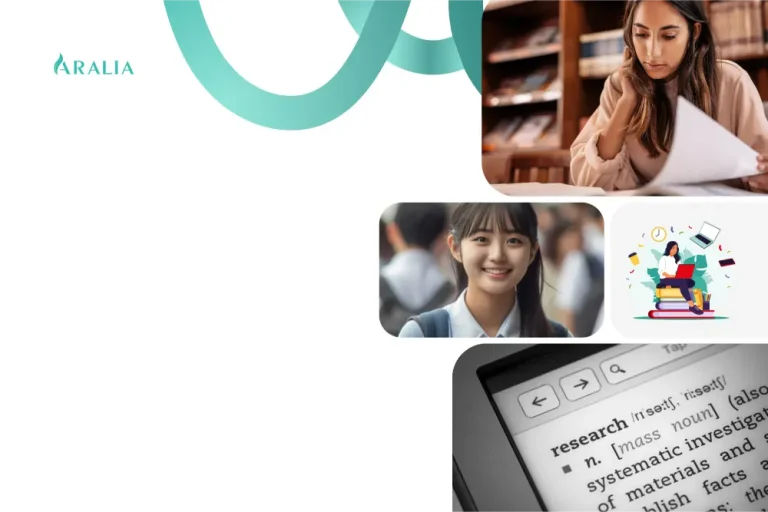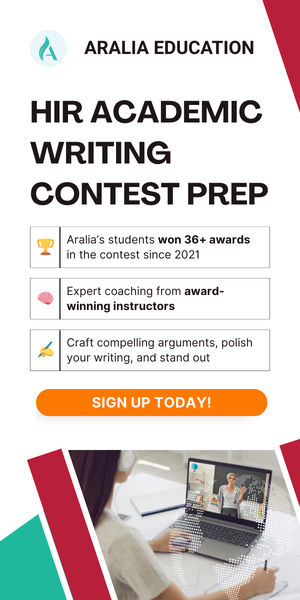Unlock Your Potential: Students in Our Summer Programs Are More Likely to Secure Awards
Join successful Aralia students who have won top writing and research competitions and secured admission to their dream schools.
1. What are the Carnegie Mellon Summer Programs?
Carnegie Mellon University, well-known for producing the world’s best computer scientists, hosts 13 summer programs for high school students. Courses are taught by Carnegie Mellon faculty, tightly mirror the first-year undergraduate experience in terms of rigor, and strongly focus on preparing students for college in their respective fields.
Carnegie Mellon University (CMU) offers 13 summer programs for high school students, covering topics from artificial intelligence and art to computational biology, computer science, and game development. Programs are 3-, 4-, 5-, and 6-week long and tailor-made for sophomores or juniors at least 16 years old. Programs range in cost from ~$10,00 to fully funded/free. Free programs are specially for underprivileged or underrepresented students.
2. Why should students participate in the Carnegie Mellon Summer Programs?
Carnegie Mellon Summer Programs allow ambitious, accomplished high school students to learn from top-tier Carnegie Mellon professors and learn what it’s like to be a freshman at CMU. With each of the 13 summer programs, students can expect rigor and eye-opening learning experiences. CMU Summer Program students do hands-on learning with state-of-the-art resources. Carnegie Mellon classes focus on building creativity and collaboration skills by introducing multiple group projects in the student’s unique areas of interest. Students will receive individualized feedback and guidance to meet their unique needs. Students hear about ongoing research projects at CMU by faculty and graduate students. CMU Summer Programs focus on preparing your portfolio (in all subjects) with well-crafted work and developing essential skills, specifically setting you up for success with college admissions.
Additionally, residential students will live in the Carnegie Mellon dorms and eat in the dining halls; high school students will experience college life at an incredibly prestigious, selective university. CMU Summer Programs are packed with fun on- and off-campus activities, allowing high school students to meet and befriend fellow intelligent, driven, high-achieving, and diverse peers. Students can make lifelong friendships through participation in on-campus clubs such as a cappella choir or gaming, a CMU-hosted 4th of July fireworks show, field trips to the city, and sports activities.
All programs* encourage and welcome students without prior experience to participate. In select programs, students have the option to earn college credit. *except Music Programs, designed to build you up for college.
Programs are intense, rigorous, and time-consuming, and CMU repeatedly emphasizes that each program requires a student’s full commitment to the program. Students are not allowed to have other commitments (ie. evening/weekend online classes with other institutions, sports practices, music lessons, etc.) throughout the program’s duration—students simply will be too busy with coursework for their CMU program. Spend a rigorous and rewarding summer at Carnegie Mellon University!
3. What do the Carnegie Mellon Summer Programs cover?
Read the program details for each of the 13 Carnegie Mellon Summer Programs, covering academic content, length and schedule, application eligibility, and costs.
AI Scholars AIS
Academic Content
In AI Scholars, students study how to use artificial intelligence to solve real-world challenges for the betterment of humanity. Students attend college-level courses taught by Carnegie Mellon professors. Courses are conducted not just through typical classroom instruction but also through hands-on research projects, faculty lectures, and industry engagement with leading tech companies. Students present their capstone group project to peers and instructors at the AIS closing symposium at the end of the program. AIS also includes weekly college prep seminars covering college admissions, financial aid, social-emotional well-being, etc.
Length and Schedule
4-week residential-only program. Classes go from Monday through Friday, 9am to 6pm. The evenings are for homework, office hours, group study, and social time. Weekends include field trips, on-campus clubs, and social/individual free time.
Who is eligible to apply?
Current high school juniors (11th grade). U.S. citizen or permanent resident (green card holder). Students registered with DACA. Not required to have prior coding experience.
Cost
AIS is a fully funded program—accepted students do not pay. All costs including tuition, housing, meal plans, and field trips and special events are covered. This program is intended for underprivileged or underrepresented students who lack access to educational resources in computer science at home, school, or in their community. For example, low economic status, future first-generation college students attending a high school with historically low rates of admittance to top-tier institutions, etc.
Architecture
Academic Content
Students will work on multiple architecture projects using 2D, 3D, digital, and analog techniques. Students will focus on building foundational architectural skills, literacy, and confidence, analytical thinking, conceptual development, and techniques in representation and spatial articulation. Classes include studio work, class critiques, seminars, workshops, special lectures, and field trips related to digital media and fabrication, issues of contemporary practice, and portfolio creation.
Length and Schedule
5-week program accepting both residential or commuter students. Seminars (morning) and studio work (afternoon) run Monday through Thursday from 9am to 4:30pm. The evenings are for TA office hours and open studio as a homework space (6pm-10pm). Fridays are for field trips. Weekends are open studio.
Who is eligible to apply?
Current high school sophomores or juniors (10th or 11th grade)
Cost
5-week Residential $10,030 (Commuter $7,704)
Art
Academic Content
Classes in the Art program include individual critique, workshops, portfolio development, and demonstrations. This program covers a large range of artistic mediums including drawing, sculpture, animation, concept studio*, painting, digital photography, and printmaking. *Concept studio explores the self and the human being, space and time, systems and processes, and contextual practice. Here, students develop work less centered around techniques and more on personal creativity.
Length and Schedule
3-weeks or 6-weeks residential or commuter. Classes run Monday through Thursday, with Friday being reserved for optional elective workshops.
Who is eligible to apply?
Current high school sophomores or juniors (10th-11th grade)
Cost
3-week Residential $7,416 (Commuter $5,773)
6-week Residential $11,362 (Commuter $8,438)
Computational Biology
Academic Content
The Computational Biology program focuses on biological questions about the microbes living in three rivers nearby Carnegie Mellon’s campus and on the COVID-19 pandemic. Students will use modern laboratory techniques to isolate the bacterial DNA from the water and break the DNA strands into millions of tiny fragments that are then read. Classes follow a hackathon model of working in small groups to write programs solving computational problems as well as time in the laboratory conducting experiments to generate large datasets to be analyzed with student code.
Length and Schedule
3-week residential or commuter. Classes run Monday through Friday.
Who is eligible to apply?
Current high school sophomores or juniors (although the program will mostly accept juniors) with a minimum academic average of B (3.0/4.0 GPA). Previous coding experience is not required.
Cost
3-week Residential $8,500 (Commuter $6,715)
Computer Science Scholars CSS
Academic Content
In CSS, students learn algorithmic components (variables, functions, conditionals, and loops), basic data structures (lists and dictionaries), and problem-solving techniques (algorithmic thinking, top-down design, testing, and debugging) in Python. Students collaborate on a hands-on group capstone project, which will be presented to peers and instructors at a symposium at the end of the program. CSS also includes weekly college prep seminars, covering college admissions, financial aid, social emotional wellbeing, etc.
Length and Schedule
4-week residential-only program. Classes go from Monday through Friday, 9am to 6pm. The evenings are for homework, office hours, group study, and social time. Weekends are full of field trips, on-campus clubs, and social/individual free time.
Who is eligible to apply?
Current high school sophomores (11th grade). U.S. citizen or permanent resident (green card holders). Students registered with DACA. Not required to have prior coding experience.
Cost
CSS is a fully funded program—accepted students do not pay. All costs including tuition, housing, meal plans, and field trips and special events are covered. This program is intended for underprivileged or underrepresented students with a lack of access to educational resources in computer science at home, school, or community. For example, low economic status, future first-generation college students, attending a high school with historically low rates of admittance to top-tier institutions, etc.
Design
Academic Content
The Design Summer Program classes include studio learning, lectures, critiques, field trips to museums, workspaces and community spaces, and guided work sessions with faculty. Students will each have their own personal studio space. Students leave the program with a faculty-approved, carefully critiqued portfolio of work. Students will also present their work in a showcase exhibit. Curriculum covers Studio Design for Products, Communications & Environments, Design Drawing, Design Photography, and Design Research & Problem-Solving Methods.
Length and Schedule
6-week residential or commuter. Classes run Monday through Friday.
Who is eligible to apply?
Current high school sophomores or juniors (10th-11th grade) with a minimum academic average of B (3.0/4/0 GPA). Previous experience not required.
Cost
6-Week Residential $11,392 (Commuter $8,272)
Drama
Academic Content
Drama students choose from three options: Acting, Design/Production, or Music Theater. The Acting option focuses on audition preparation and classroom training. Students build a portfolio of monologues. Courses cover acting, auditions, acting for the camera, dramaturgy, movement, Shakespeare, and voice & speech. The Design Production course-load includes basic design, technical production, stage & production management, lighting, sounds, video/media, costumes, fabrication technology, and dramaturgy. Music Theater focuses on audition preparation and classroom training. Students build a portfolio of monologues and songs. Classes include ballet, jazz, acting, audition, acting for the camera, song coaching, and dramaturgy. Acting and Music Theater students may choose an elective (ie. improv, directing, tap dance, etc.).
Length and Schedule
6-week residential or commuter. Classes run Monday through Friday, from 9am to 6pm. Optional workshops and masterclasses available in the evenings.
Who is eligible to apply?
Current high school sophomores or juniors (10th-11th grade). Students not required to audition for the program.
Cost
6-week Residential $11,485 (Commuter $8,378)
Music
Academic Content
Music students choose from three majors: Instrumental and Vocal Performance, Composition, or Music Technology/Electronic Music. Classes include private studio lessons, music theory, sight singing, dalcroze eurhythmics, major performing ensembles, concert choir, music history seminar, convocation, and music support courses. Students perform in multiple concerts and a Concert Week with chamber music, opera scenes, choir, jazz ensembles, and more.
Length and Schedule
3-weeks or 6-weeks residential or commuter. Classes run Monday through Friday.
Who is eligible to apply?
Current high school sophomores or juniors (10th-11th grade). Students must audition and are accepted based on performance level.
Cost
3-week Residential $7,400 (Commuter $5,600)
6-week Residential $10,866 (Commuter $7,766)
National High School Game Academy
Academic Content
This unique summer program focuses on video game development using current industry best practices. Students will produce an original game prototype from pitch to final playable demo. Topics covered include 2D and 3D art, software development, music composition, audio FX, game design, production, team management, and interactive narrative. Students split into teams towards second half of program based on area of expertise as determined by performance in the first few weeks. By the end of the program, students will have collaborated in two teams and made two games. The program has four tracks to choose from: Software Development, Game Generalist, Visual Arts/Graphic Design (2D/3D Art), and Sound Design or Music Composition.
Length and Schedule
6-week residential or commuter. Classes run Monday through Friday.
Who is eligible to apply?
Current high school sophomores or juniors (although the program will mostly accept juniors) with a minimum academic average of B (3.0/4.0 GPA). Portfolios should prove strong interest in the entertainment industry (film, video games, tabletop games, music, etc.) and software development, game generalist, visual arts, graphic design, sound design, and/or music composition. Application essays should demonstrate ability to succeed in creative, collaborative projects, and a motivated and hard-working attitude. Spots sometimes fill up before application deadline so apply early!
Cost
6-week Residential $12,105 (Commuter $8,998)
81% of Aralia Students Win Awards in Contests
Aralia’s contest preparation classes have a proven track record of success. Our students consistently win awards, thanks to personalized coaching from award-winning teachers who have years of experience guiding students.
Summer Academy for Math and Science SAMS
Academic Content
SAMS is all about quantitative and computational skill seminars on math, science, and STEM-related project advised by a STEM faculty and/or graduate student. Students will also be provided with writing workshops on college application preparation. Students can also attend workshops with alumni, students, and university leaders. Bonus: students’ families will receive virtual workshops on how to support their student in the college application process. The program concludes with a symposium where students present their capstone project.
Length and Schedule
6-week residential only. Classes go from Monday through Friday, 9am to 6pm. The evenings are for homework, office hours, group study, and social time. Weekends are full of field trips, on-campus clubs, and social/individual free time.
Who is eligible to apply?
Current high school juniors (11th grade). U.S. citizen or permanent resident (green card holders). Students registered with DACA. Not required to have prior coding experience.
Cost
SAMS is a fully funded program—accepted students do not pay. All costs including tuition, housing, meal plans, and field trips and special events are covered. This program is intended for underprivileged or underrepresented students with a lack of access to educational resources in computer science at home, school, or community. For example, low economic status, future first-generation college students, attending a high school with historically low rates of admittance to top-tier institutions, etc.
Summer Session
Academic Content
The Carnegie Mellon Summer Session is the typical Pre-College program where high school students take 1-2 undergraduate-level classes, earn college credit, and see what it’s like to be a college student at Carnegie Mellon. What makes CMU’s Summer Session unique is the course list offering classes in Modern Biology (Lab), Differential and Integral Calculus, Introduction to NanoScience and Technology, Logic and Mathematical Inquiry, Introduction to Ethics, AI for Humanities, Social Psychology, etc.
Length and Schedule
6-weeks residential or commuter. Classes run Monday through Friday.
Who is eligible to apply?
Current high school sophomores or juniors (10th-11th grade) in good academic standing.
Cost
6-week Residential Two College Credits $13,326
6-week Commuter Two College Credits $10,259
6-week Commuter One College Credit $6,722
Writing & Culture
Academic Content
CMU’s Writing & Culture Summer Program is not your typical Language Arts class. This program explores writing, film, and culture through traditional, historical, and contemporary lenses on CMU’s campus and throughout Pittsburgh. Students produce a portfolio of work in digital poetics and short-form writing, film development and production, and preparatory materials. Students will learn the skills for exquisite storytelling through attend readings, performances, and discussions by/with authors and artists in the city’s cultural scene. Additionally, classes will venture into the city to explore museums, archives, and rare book rooms.
Length and Schedule
4-week residential or commuter. Classes run Monday through Friday.
Who is eligible to apply?
Current high school sophomores or juniors (10th-11th grade) with a minimum academic average of B (3.0/4.0 GPA) in their last English class
Cost
4-week Residential $8,995 (Commuter $6,800)
Experience Designing Games: Exploration EDG:E
Academic Content
The EDG:E is a new program in its first launch. This program covers everything about making an interactive experience in the interdisciplinary modern game design industry. Topics include 2D art, 3D art, software development, music composition, audio engineering, game design, production, management, and interactive narrative. Students will attend pre-apprenticeship programs, game design competitions, and playtesting professional prototypes. The class also includes a lightning round of game building.
Length and Schedule
3-week commuter-only. Classes run Monday through Friday.
Who is eligible to apply?
Current high school juniors (11th grade). U.S. citizen or permanent resident (green card holders). Students registered with DACA. Not required to have prior coding experience.
Cost
EDG:E is a fully funded program—accepted students do not pay. All costs including tuition, housing, meal plans, and field trips and special events are covered. This program is intended for underprivileged or underrepresented students with a lack of access to educational resources in computer science at home, school, or community. For example, low economic status, future first-generation college students, attending a high school with historically low rates of admittance to top-tier institutions, etc.
4. Important Dates for CMU Summer Programs
Early Decision* and International Students Application Deadline: February 1, 2024
Regular Decision and Scholarship Application Deadline: March 1, 2024
International students are not eligible to apply for scholarships/financial aid.
Programs Start: June 22, 2024
Programs End between July 12 to August 2, 2024
Even with the early application deadlines for this summer program, CMU is accepting summer students on a rolling admission basis. We strongly recommend students to apply early since this is a very prestigious and popular summer program.
*Early Decision is not binding, but since admissions are rolling until March 1, it’s better to apply early to be secure a spot.
5. Application Requirements for CMU Summer Programs
For all programs, the general online application requires a 300-500 word essay response to the prompt “What do you hope to gain from participating in Carnegie Mellon’s Pre-College Programs?” as well as an unofficial high school transcript, one letter of recommendation, and optional standardized test scores. All programs, excluding the fully funded programs, have a $50 application fee.
Architecture, Art, Design, Music, National High School Game Academy, and Writing & Culture require portfolios of 5-10 pieces of work. AI Scholars (AIS), Computer Science Scholars (CSS), Summer Academy for Math and Science (SAMS), and Experience Design Games: Exploration (EDG:E) require two letters of recommendation (one by a counselor and one by a STEM teacher). Most programs will require additional supplemental essays with prompts such as, “Why are you interested in studying [architecture, art, computational biology, design, EDG:E]?” or “What has prepared you for the challenge of rigorous college-level courses?” Carefully read each program’s website for supplemental application material requirements.
6. Get Ready for 2025 Carnegie Mellon Summer Programs with Aralia Education
Aralia Education is an online learning platform designed for motivated middle and high school students worldwide. We provide small group and personalized one-on-one classes led by experienced high school teachers and university professors from top-ranking American institutions. Our teachers support students in exploring interests beyond their school curriculum. Prepare for Carnegie Mellon Summer Programs with an online course with Aralia Education!













